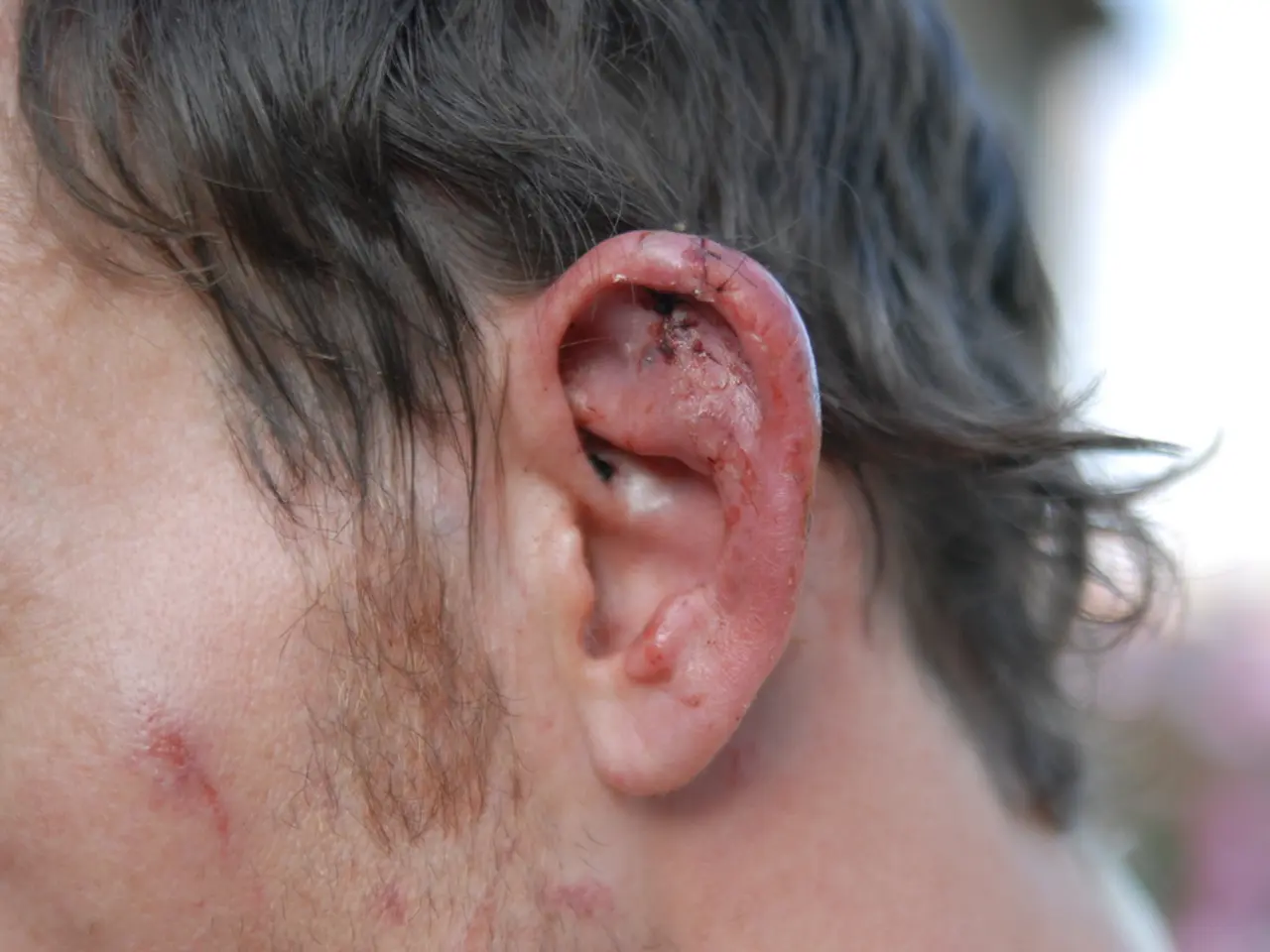Assessment of Organ Age, Health Conditions, and Prognostic Death Risk through a Fresh Test
A groundbreaking blood test, developed by a team of researchers at Stanford University, promises to revolutionize the approach to healthcare by predicting a person's future health status organ by organ, based on the biological age of their organs[1][2][4].
The test, which analyses the levels of specific proteins in a single blood sample, can determine the biological age of eleven organ systems, including the brain, heart, lungs, kidneys, and more[1][4]. By matching these proteins to the organs that produce them and using a complex computational algorithm, the test estimates how "aged" each organ is in terms of its functional state.
In a study involving over 44,000 individuals aged 40 to 70, with follow-ups of up to 17 years, the researchers found that the more organs with advanced biological age a person had, the higher their risk of mortality during that period[1]. Among the organs studied, the brain’s biological age emerged as the strongest single predictor of both mortality risk and future disease development, such as Alzheimer’s disease[1][4].
People with biologically older brains had a significantly higher chance of dying (182% increase in risk) and developing Alzheimer's, while those with younger brains had a reduced mortality risk (40% less) and lower Alzheimer's risk[1][4]. Furthermore, the biological age of each organ correlated with the risk of diseases associated with that organ. For example, an aged heart was linked to a higher risk of atrial fibrillation and heart failure, while an aged lung was associated with a higher risk of chronic obstructive pulmonary disease (COPD)[4].
This blood test enables a shift from treating illness to proactively managing health by tracking how different organs age within the same individual[2]. The researchers are aiming to shift from sick care to health care and intervene before people get organ-specific diseases[2].
The research team found that about a third of the study participants had at least one organ with a deviation of 1.5 or more from the average[1]. An "extremely old heart" was linked to a higher risk of atrial fibrillation or heart failure, an aged lung was associated with an increased risk of COPD, and an old brain was linked to a higher risk of Alzheimer’s[1].
The blood test measures the amount of almost 3000 proteins in the blood of participants and calculates an average for each organ, adjusting it to the age of the person[4]. However, there were associations found that, from a medical perspective, make no sense, such as people with young blood vessels being more likely to develop type 2 diabetes, COPD, and chronic liver diseases[4].
The researchers are aware that further research is needed before their method can accurately determine the age of organ systems, but they are convinced that their analysis tool will soon be used beyond research purposes[3]. The team examined the brain, muscles, heart, lungs, arteries, liver, kidneys, pancreas, immune system, gut, and fat tissue[4].
In conclusion, Stanford’s blood test uses protein biomarkers from a single blood draw, computationally assigns biological ages to 11 organ systems, and predicts mortality risk and disease likelihood by correlating organ age with long-term health outcomes[1][2][4].
References: 1. https://www.stanforddaily.com/2021/01/28/stanford-scientists-develop-new-blood-test-to-predict-organ-specific-aging/ 2. https://www.sciencedaily.com/releases/2021/01/210128140234.htm 3. https://www.nature.com/articles/s41586-021-03337-0 4. https://www.nature.com/articles/s41586-021-03227-w
The blood test developed by Stanford University researchers, which analyses protein biomarkers in a single blood sample, is revolutionizing healthcare by predicting a person's future health status organ by organ, based on the biological age of their organs [1][2][4]. This test, used in research purposes currently, aims to eventually shift from sick care to health care, proactively managing health by tracking the biological age of 11 organ systems, including the brain, heart, and lungs [2]. Moreover, the biological age of each organ, determined through this test, correlates with the risk of diseases associated with that organ, such as Alzheimer's for the brain, heart failure for the heart, and COPD for the lungs [4].




